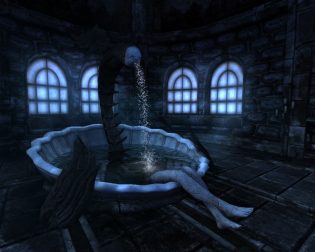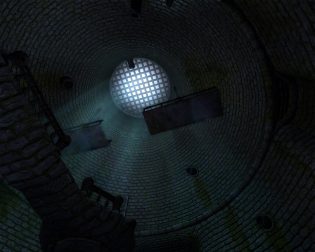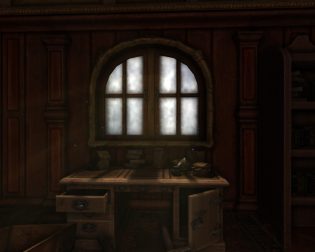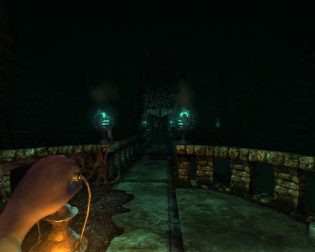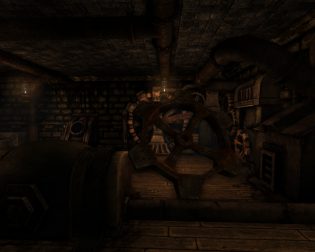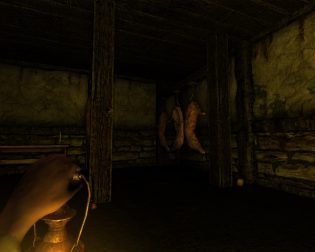Daniel… My name is Daniel… I live in London…
There are horror titles that are designed to specifically make you produce rectangular blocks made of fired clay from your bottom. Penumbra: Overture, the first game by Frictional Games, was pretty much that. By the time the second part of the “trilogy” (it was more of a duology with an extended epilogue) was out it became clear that the devs wanted to focus far more on the storytelling rather than scaring the players. Some people might’ve not liked that, but I loved it. And both games were a good indicator that Frictional can tell good stories.
Reading the earliest design documents on “Unknown” (the project that became Amnesia) you can see that it was originally intended to be far closer to what Penumbra was and with far more conventional adventure game mechanics in terms of having NPCs and overall game structure. Knowing that the development team is only 5 people, I’m really glad they discarded those ideas and instead have shown that it is possible to tell an amazing story with minimal resource, without seeing (almost) any characters or cutscenes. And do it not much worse than a big budget game can.
The story is the focus of Amnesia. It’s story, then horror, then survival elements, in that order. And it’s easy to understand why – developers explained in their dev blog that they really hate how in many story-driven titles the narrative can suddenly pause due to unexpected reasons. How it works to detriment of player’s enjoyment of the game and their immersion. How a puzzle too difficult or an unexpected death, that requires you to replay an entire segment again, can ruin the experience. So they went a different way.
I’ve had issues only in 2 locations of the entire game, where I felt like the problem wasn’t presented clearly enough. And even there, after reexamining the area the answer became obvious. And the deaths work very differently in this game. Instead of save points it uses checkpoints, but despite dumping you in some earlier section upon death and showing you some gameplay hint, you oftentimes don’t need to redo things you did before dying. Things that you’ve gathered are still in your inventory, puzzles solved remain solved and the enemy that caught you might even be gone from the area, never to be seen again. You still need to try again, but you don’t have to redo everything. And due to that, getting actually stuck on something is pretty much impossible.
Enemies don’t exist forever. Oftentimes they might leave the area after patrolling for a while. But at the same time, there’s an element of randomness to how they work, intended to catch you off guard, but not punish you.
Even Madness mechanic doesn’t really hurt you as much as you might think – you’d hear ringing in your ears, fall down and then Daniel will just pop back up, ready to play further. Not sure if it was a change made later into development, since original idea had the madness change some of the locations, making them feel more “wrong” the worse Daniel’s mental state was. Though, some of that is still retained, so the game does some rather unexpected and creepy changes to locations you’ve already seen upon revisits. It’s no Eternal Darkness, but it works pretty well.
I actually can’t really compare the game to the Penumbra series – Amnesia is very different. Gameplay-wise it’s almost exactly the same. Yet the game is completely different. I love Shattered Memories, I liked Metro 2033 and I consider Cryostasis to be an amazing title. But it wasn’t until Amnesia that I’ve seen a truly perfect balance between gameplay and storytelling. Making this little indie title, made by just 5 people, the best ever story game I can think of.
My name is… Daniel…


